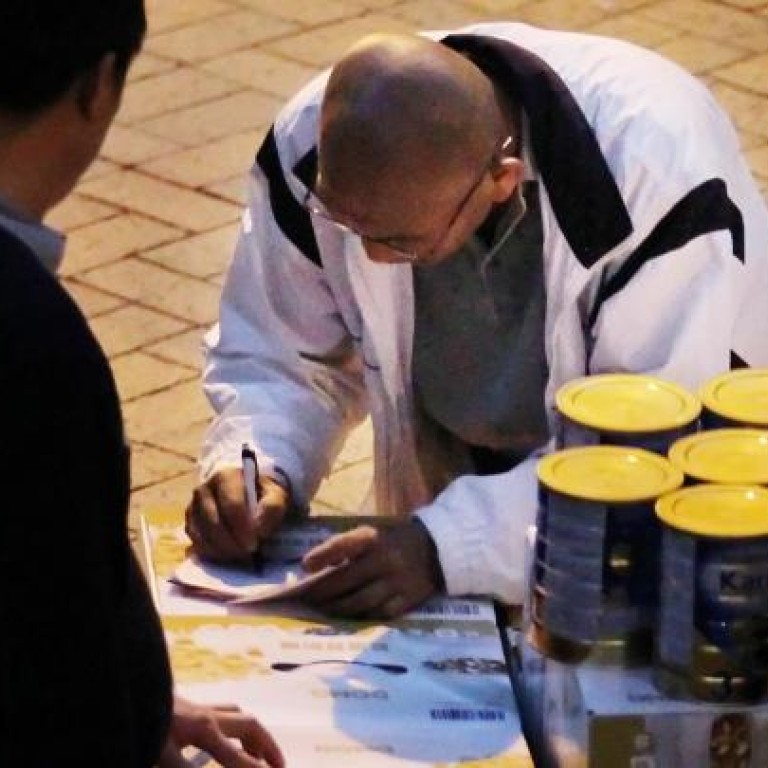
Parallel trading of baby milk formula still rampant despite Hong Kong restrictions
Mainland operators are using travellers to beat two-tin restriction on infant milk formula
Parallel trading at the border is still active despite the Hong Kong government's restrictions on exporting baby milk formula, with traders mobilising a large number of travellers to beat the two-tin limit.
A check of the mainland side of the Lo Wu border checkpoint at the weekend found several dozen traders with trolleys full of milk powder. They were collecting different brands and handing out cash to travellers.
One trader hinted that they were selling their products at a higher price to mainlanders after the new restrictions took effect. "The running costs are higher," he said. "It's more costly to do this [business] than before."
He offered Friso stage two infant formula to a reporter for 240 yuan (HK$300), compared with the standard market price of HK$246. Tins of Friso stage three formula were sold for 230 yuan, compared with the standard Hong Kong price of HK$216. "They are all from Hong Kong, you can check the labels," he said.
When asked whether they needed more people to carry milk formula from Hong Kong, the trader said: "I will buy from you if you bring [infant formula] here."
During the conversation, a man who had travelled from Hong Kong was seen handing over two tins of formula to the trader, who then paid him.
The robust grey market in infant formula from Hong Kong is in sharp contrast to abundant supplies offered in Shenzhen supermarkets. Foreign brands such as Mead Johnson, Friso and Nestle - in mainland packaging - have been left on the shelves. "Parents want to buy those from Hong Kong," a Walmart worker said.
The new restriction has sparked debate after 12 mainland visitors carrying rice-based baby cereal across the border were wrongly arrested.
An amendment is likely to clarify the ban covering "all substances in powder form that are or appear to be for consumption by a person aged under 36 months, and are or appear to be milk or milk-like substances in powder form to satisfy wholly or partly the nutritional requirement of a child".

